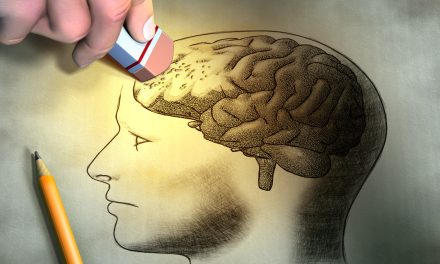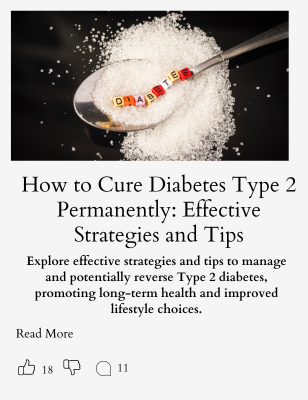Vitamins play an important role in keeping the brain healthy. As people age, maintaining sharp memory and cognitive abilities becomes a priority.
Among the various vitamins, B vitamins, especially B12, are most effective in reducing the risk of memory loss. These vitamins help lower levels of homocysteine, an amino acid linked to brain shrinkage and cognitive decline.
While B vitamins are vital, other nutrients also contribute to brain health.
Omega-3 fatty acids, found in fish oil, support cognitive function and may slow memory decline.
In addition to these nutrients, a balanced diet and healthy lifestyle choices can further promote brain health and memory retention.
Key Takeaways
- B vitamins, especially B12, are crucial for reducing memory loss risk.
- Omega-3 fatty acids can further support cognitive health.
- A combination of diet, vitamins, and lifestyle promotes brain health.
The Role of Vitamins in Preventing Memory Loss
Vitamins play a crucial part in brain health and can impact memory and cognitive functions. Certain vitamins are linked to reducing cognitive decline and improving memory.
Understanding Memory and Cognitive Decline
Memory loss and cognitive decline often occur as part of aging. Cognitive decline can affect thinking, concentration, and processing information. Causes include factors like genetics and lifestyle. People often seek ways to maintain brain health and slow down such decline.
Research shows that nutritional deficiencies may contribute to memory issues. Therefore, maintaining a balanced diet rich in specific nutrients can help. Understanding how these nutrients affect the brain is valuable for those concerned about cognitive health.
Key Vitamins for Cognitive Health
Certain B vitamins are important for brain health. Vitamins such as B6, B12, and folic acid are known to support brain function. Studies suggest that vitamin B-12 is associated with episodic memory.
B-vitamin supplements may help in protecting against memory decline. In some cases, they have been shown to prevent atrophy of brain regions related to Alzheimer’s.
Antioxidant vitamins like C and E also play a role in brain health. They help protect against oxidative stress, which can damage brain cells. Including these vitamins in the diet can contribute to maintaining memory and cognitive function.
Investigating Specific Vitamins
Vitamins play a significant role in maintaining brain health. Certain vitamins are often associated with boosting memory and preventing cognitive decline. This section highlights the effects of vitamin B12, vitamin D, vitamin E, and vitamin C on memory.
Vitamin B12 and Cognitive Function
Vitamin B12 is crucial for the formation of red blood cells and the maintenance of the nervous system. People, especially older adults, who lack vitamin B12 might experience symptoms related to cognitive dysfunction. Some studies suggest that B12 supplements might help improve memory and decrease cognitive decline.
Low levels of this vitamin can result in neurological issues and memory problems. B12 is predominantly found in animal-based foods like meat, eggs, and dairy, making it important for those on vegetarian or vegan diets to monitor their intake.
Vitamin D and Its Impact on Brain Function
Vitamin D, often referred to as the “sunshine vitamin,” is essential for bone health and also displays benefits for brain function. Research has linked vitamin D deficiency to increased risks of cognitive decline and dementia. It plays a role in regulating the nervous system, which is crucial for brain health.
Some evidence shows an association between vitamin D and learning and memory, suggesting that adequate levels might assist in maintaining cognitive functions. Sources of vitamin D include sunlight exposure, fatty fish, and fortified foods.
Antioxidant Properties of Vitamin E
Vitamin E is a fat-soluble antioxidant that protects brain cells from oxidative stress. Oxidative stress can damage cells, potentially leading to cognitive decline. Studies have investigated whether vitamin E supplements could slow memory issues, though they have yielded mixed results.
While some research indicates that vitamin E does not significantly prevent memory decline, it remains a popular supplement for its antioxidant properties and potential to support overall brain health. Foods rich in vitamin E include nuts, seeds, and green leafy vegetables.
Cognitive Benefits of Vitamin C
Vitamin C, another powerful antioxidant, helps protect the brain from damage caused by free radicals. It is important for cognitive function, and some research has found that higher vitamin C levels are connected to better memory and cognitive performance.
This vitamin supports neurotransmitter function and the health of blood vessels in the brain, which may reduce the risk of cognitive decline. Vitamin C is abundant in fruits and vegetables like oranges, strawberries, and bell peppers, making it relatively easy to meet daily requirements through diet.
The Importance of Omega-3 Fatty Acids
Omega-3 fatty acids play a vital role in maintaining brain health, which can help improve memory. These essential fats are found in various dietary sources and can also be consumed through supplements, each with unique benefits.
Sources of Omega-3 in Diet
Omega-3 fatty acids are commonly found in fatty fish. Fish like salmon, mackerel, and sardines are rich in these essential nutrients. Regular consumption of these fish provides enough omega-3s to support brain health.
For those who prefer plant-based options, omega-3s can also be found in flaxseeds, chia seeds, and walnuts. These plant sources contain alpha-linolenic acid (ALA), a type of omega-3 that the body partially converts into more active forms like DHA and EPA.
Omega-3 Supplements and Memory Improvement
Omega-3 supplements, especially fish oil, are popular for their potential to support cognitive function. Research indicates that these supplements might help slow down age-related memory decline by providing DHA and EPA, which are crucial for brain health.
People who don’t consume enough omega-3-rich food often turn to supplements. They are sold in various forms, such as capsules and liquid, making them accessible and easy to include in the daily diet. For those looking to support memory, incorporating omega-3 supplements could be beneficial but should be considered alongside overall dietary habits.
Nutritional Patterns and Brain Health
Certain nutritional patterns can play a significant role in maintaining brain health and preventing memory loss. Two well-researched diets that have shown promise in this area include the Mediterranean diet and plant-based nutrient patterns.
Mediterranean Diet and Neuroprotective Effects
The Mediterranean diet emphasizes the consumption of vegetables, fruits, nuts, and olive oil. This diet is rich in antioxidants and healthy fats, which support cognitive health. Research suggests that regular adherence to this diet can reduce the risk of cognitive decline. Foods rich in omega-3 fatty acids, such as fish, are also a key component. These elements help protect against age-related brain volume loss, supporting overall brain function and potentially lowering the risk of dementia and Alzheimer’s disease.
Plant-Based Nutrients and Cognitive Preservation
Plant-based diets focus on a wide variety of fruits, vegetables, and whole grains. These foods are high in essential vitamins like B12 and folate, which contribute to cognitive preservation. They offer antioxidants and anti-inflammatory compounds that help maintain brain health. Studies have indicated that increased intake of such nutrients can boost brain function, helping older individuals maintain memory and cognitive sharpness. Including plenty of leafy greens and beans, which are also rich in these vitamins, is crucial for sustaining mental health as one ages.
Supplementary Approaches to Enhancing Memory
Memory supplements can play a role in maintaining cognitive health. Some provide general support, while others target specific memory issues. This section explores different options, including multivitamins and herbal supplements.
Multivitamins and Overall Cognitive Support
Multivitamins are taken for various health benefits, including cognitive support. They often contain essential nutrients like vitamins B, C, D, and E, which are important for brain health. Vitamin B, for example, can slow brain atrophy linked to memory issues. Studies suggest that proper dietary supplementation can counteract nutrient deficiencies, potentially benefiting memory.
Some multivitamins are specially formulated to support cognitive function, combining several key vitamins and minerals. Taking a general daily multivitamin can be a simple way to ensure a baseline intake of necessary nutrients. Research, like the Cache County Study, shows some links between antioxidant vitamins and reduced risk of memory-related diseases.
The Efficacy of Herbal and Natural Supplements
Herbal supplements such as ginkgo biloba and huperzine A are popular for memory enhancement.
Ginkgo biloba is believed to improve blood flow to the brain, which might aid in improving memory. Huperzine A works by preventing the breakdown of an important neurotransmitter, which supports memory retention.
Curcumin, found in turmeric, is noted for its anti-inflammatory properties and may contribute to cognitive health.
It’s important to research individual supplements to understand their potential benefits and side effects. Not all claims are backed by solid evidence, so consulting a healthcare provider before starting any supplement regimen is advised.
Lifestyle Factors Affecting Memory
Lifestyle plays a crucial role in keeping the mind sharp. Two main aspects significantly influence memory and cognitive skills: exercise and sleep.
Exercise and Cognitive Abilities
Regular physical activity can enhance memory by improving overall health and slowing down cognitive aging. Exercise increases blood flow to the brain, which aids in the growth of new brain cells.
Activities like walking, swimming, or cycling can help maintain cognitive skills and reduce aging-related factors that impair memory. These activities stimulate areas of the brain involved in memory and higher cognitive functions, which may improve memory retention and learning ability.
Incorporating both aerobic exercises and strength training into a routine can provide extra benefits. Aerobic exercises boost oxygen flow, while strength training supports muscle and bone health. Both are important for healthy aging.
Consistency is key, and engaging in at least 150 minutes of moderate exercise weekly is beneficial.
Sleep and Its Impact on Memory
Adequate rest is essential for memory consolidation and learning processes. During sleep, the brain processes new information and stores it, influencing both short-term and long-term memory.
Sleep helps in clearing toxins from the brain that accumulate throughout the day, which is vital for cognitive functions.
Missing out on enough sleep can lead to forgetfulness and impaired cognitive aging. Adults typically need 7-9 hours of sleep per night to function optimally.
Creating a restful environment with a consistent sleep schedule supports better memory and overall cognitive health. Avoiding caffeine and electronics before bedtime can enhance sleep quality, allowing for proper brain recovery and memory improvement.
Emerging Research on Memory Enhancement
Recent studies highlight the role of certain compounds and lifestyle factors in enhancing cognitive health. Advances in nutrition and biology reveal promising pathways that may help support memory and brain protection.
Innovative Compounds for Brain Health
Research into acetyl-l-carnitine and dhea has shown potential in supporting cognitive function and memory.
Acetyl-l-carnitine might help improve cognitive alertness and slow the progression of some neurodegenerative diseases by boosting energy metabolism in brain cells.
Polyphenols, found in foods like berries, grapes, and cocoa, exhibit antioxidant properties that protect brain cells from oxidative stress. These compounds could enhance cognitive functions by improving blood flow to the brain and reducing inflammation.
Continued investigation is necessary, but such compounds present exciting opportunities for supporting brain health and memory retention.
The Link Between Gut Microbiome and Cognitive Function
The gut microbiome significantly influences brain function and memory. This connection is often referred to as the “gut-brain axis.”
A diverse and balanced microbial environment in the intestines can contribute to better mental health and cognitive abilities.
Certain essential micronutrients, like omega-3 fatty acids, work together with the gut microbiome to support cognitive function. These nutrients help maintain a healthy gut barrier, which can prevent inflammation that may affect brain health.
Research continues to explore how a balanced diet rich in micronutrients and dietary fibers can sustain a healthy gut microbiome, potentially enhancing memory and overall cognitive well-being.
Conclusion
Research shows that certain vitamins can positively impact memory and overall cognitive health.
B vitamins, vitamin C, and vitamin E are notable for their potential in supporting brain function and preventing memory loss.
Summary of Key Points
Vitamins play a crucial role in maintaining cognitive functions.
B vitamins, especially B-12 and folate, show promise in preventing cognitive decline. Studies indicate their association with reduced risk of Alzheimer’s disease and mild cognitive impairment.
Vitamin C and vitamin E are known for their antioxidant properties, which help protect the brain from oxidative stress.
Proper nutritional status is essential for optimal brain health and functioning.
Consistent cognitive assessments can help track the impact of vitamins on memory and global cognition, although more research is necessary for conclusive evidence.
Future Directions in Memory-Enhancing Nutrition
Future research should focus on precision nutrition approaches to better understand how vitamins can effectively enhance memory and cognitive health.
Personalized nutrition, taking into account individual differences, could help in formulating targeted interventions.
Emerging studies suggest exploring combination supplements, where vitamins work synergistically for better results.
Large-scale, long-term studies could provide the needed evidence to support these approaches.
Efforts in public health nutrition can aim to raise awareness about the importance of vitamin-rich diets in maintaining cognitive function and delaying cognitive impairments.
Frequently Asked Questions
Improving memory and cognitive function involves understanding the roles of vitamins and supplements. Here are some important questions and answers related to brain health and memory enhancement.
What are the top vitamins for enhancing brain health?
Vitamins B6, B9 (folate), and B12 are crucial for brain health. They support the production of neurotransmitters. Vitamin E’s antioxidant properties protect brain cells from damage, and vitamin D is also linked to cognitive function.
Which vitamin deficiencies are associated with memory decline?
Deficiencies in B vitamins, particularly B12 and folate, can be linked to memory decline. Low levels of vitamin D may also contribute to cognitive issues.
What are the leading brain supplements recommended for adults to improve memory?
Omega-3 fatty acids, found in fish oil, are popular for supporting memory and brain function.
Ginkgo biloba and vitamin E are also frequently recommended.
Which are the best nutrients for students to assist with memory retention?
Omega-3 fatty acids and B vitamins, particularly B6 and B12, can help students with memory retention. Choline, found in eggs, also supports brain health.
What supplements are considered most effective for focus and concentration?
Supplements like L-theanine, often found in green tea, can improve focus. Caffeine is also known for enhancing concentration, while vitamin D plays a supportive role.
Which memory enhancers are advised for senior individuals?
For seniors, a combination of vitamins B6, B9, and B12 is often recommended.
Additionally, vitamin D and omega-3 fatty acids are frequently suggested to maintain cognitive health.

















